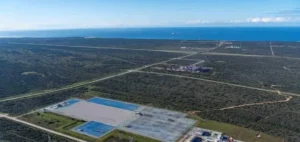Shell, le géant britannique des hydrocarbures, et l’organisation Greenpeace ont mis fin à un différend judiciaire les opposant depuis plus d’un an. Ce conflit concernait des actions menées en 2023 par des militants de Greenpeace qui avaient temporairement occupé un navire de Shell en mer.
En janvier et février 2023, six militants de Greenpeace avaient interrompu les activités d’un navire transportant une plateforme pétrolière destinée à un projet d’agrandissement d’un champ gazier situé au large de l’Écosse. Cette intervention s’inscrivait dans le cadre d’une opposition aux projets d’exploitation fossile de Shell.
Un accord pour clore la procédure
Shell avait initialement engagé une procédure judiciaire, réclamant des compensations financières de plus de 8 millions de dollars. L’accord récemment annoncé permet de mettre fin à cette bataille juridique sans reconnaissance de responsabilité par Greenpeace ou ses militants.
Selon les termes de l’accord, Greenpeace effectuera un don de 300.000 livres (environ 364.000 euros) à la Royal National Lifeboat Institution (RNLI), un organisme de sauvetage en mer. En outre, les militants se sont engagés à ne pas mener d’actions sur quatre sites pétroliers en mer du Nord pendant une période allant de cinq à dix ans. Greenpeace a toutefois précisé que ces sites étaient principalement en déclin et ne faisaient pas partie de leurs cibles stratégiques.
La sécurité en mer au cœur des préoccupations
Shell, dans son communiqué, a salué la contribution à la RNLI comme une reconnaissance des risques de sécurité soulevés par les actions maritimes de Greenpeace. L’entreprise avait qualifié ces actions de “dangereuses” et avait insisté sur les conséquences potentielles pour les équipages.
Un signal pour l’industrie énergétique
Cet accord illustre les tensions fréquentes entre les grandes entreprises énergétiques et les organisations non gouvernementales. Pour Shell, il s’agit de sécuriser ses opérations dans un contexte de pression croissante sur l’industrie fossile. Les entreprises de ce secteur continuent d’investir dans des projets d’exploration malgré les débats mondiaux autour des énergies renouvelables et des impacts environnementaux.





















